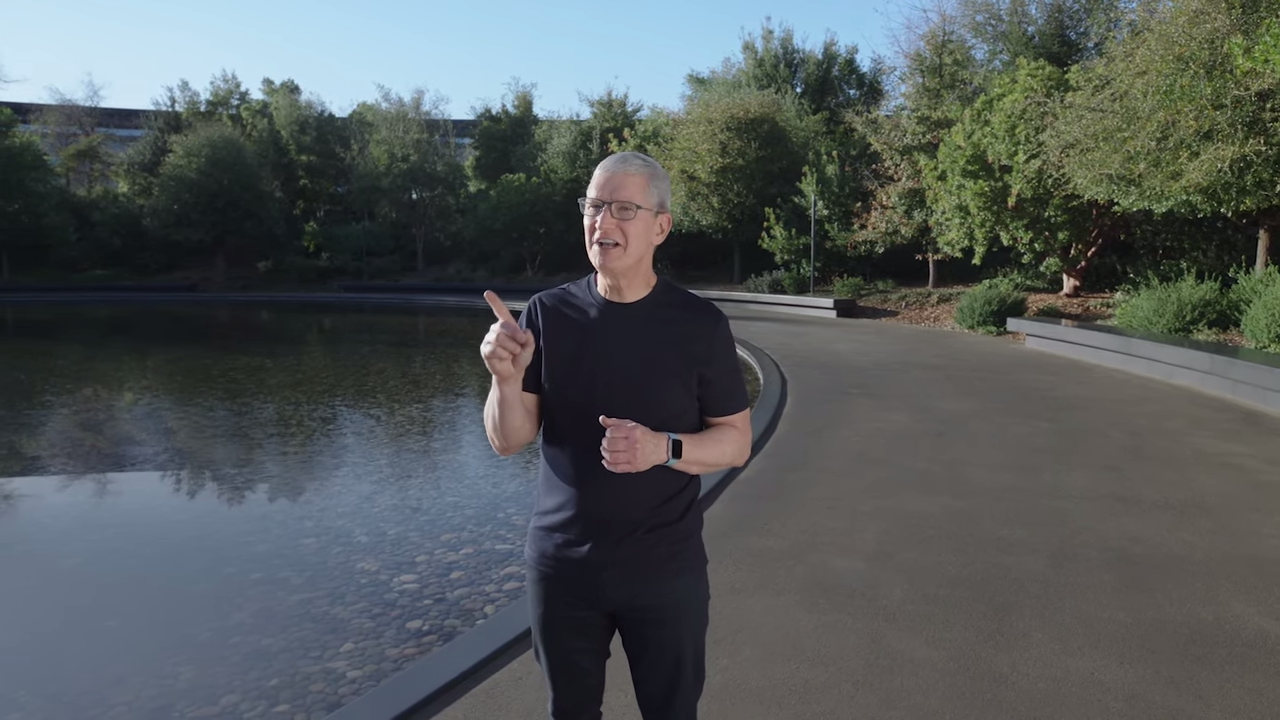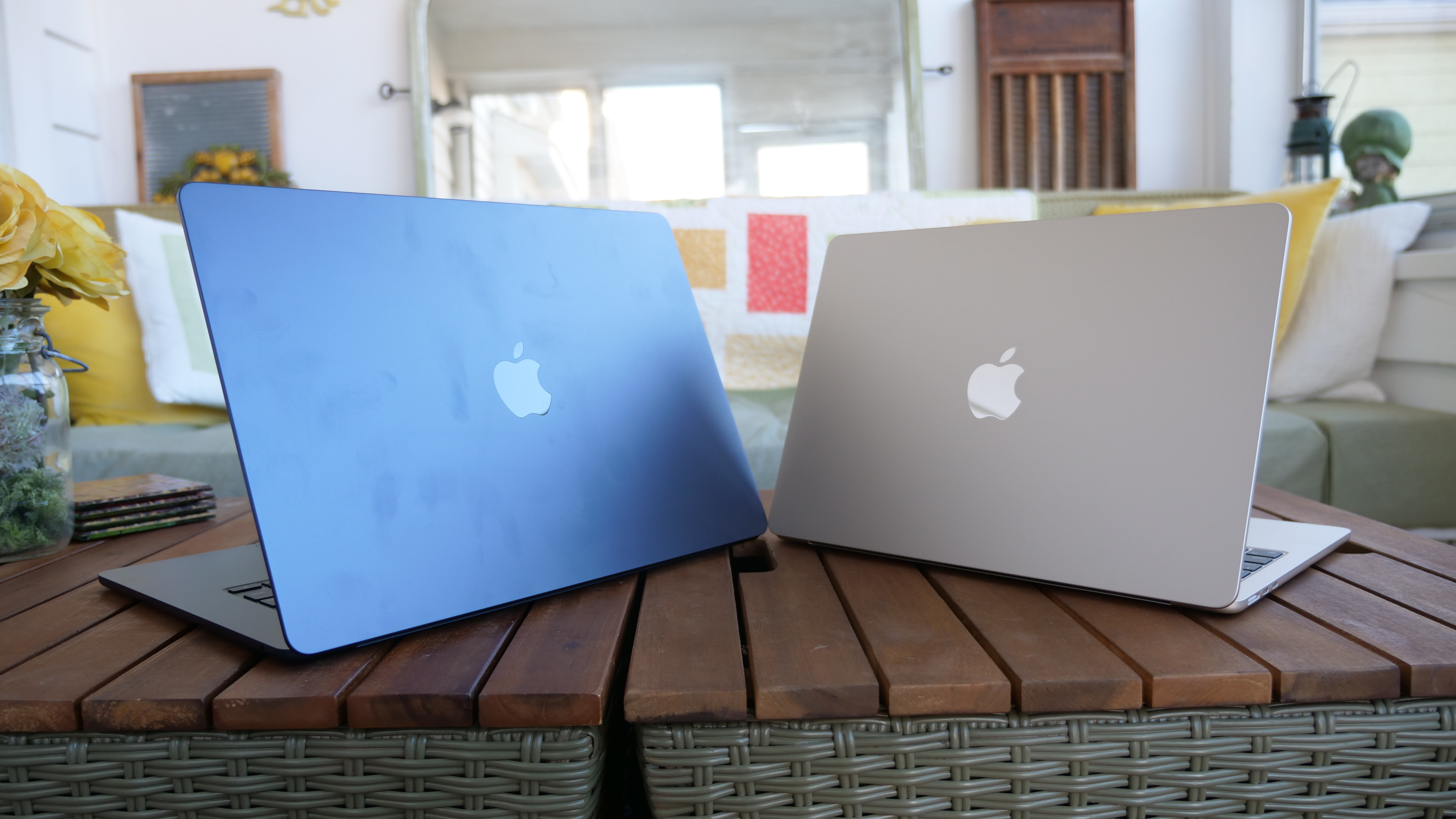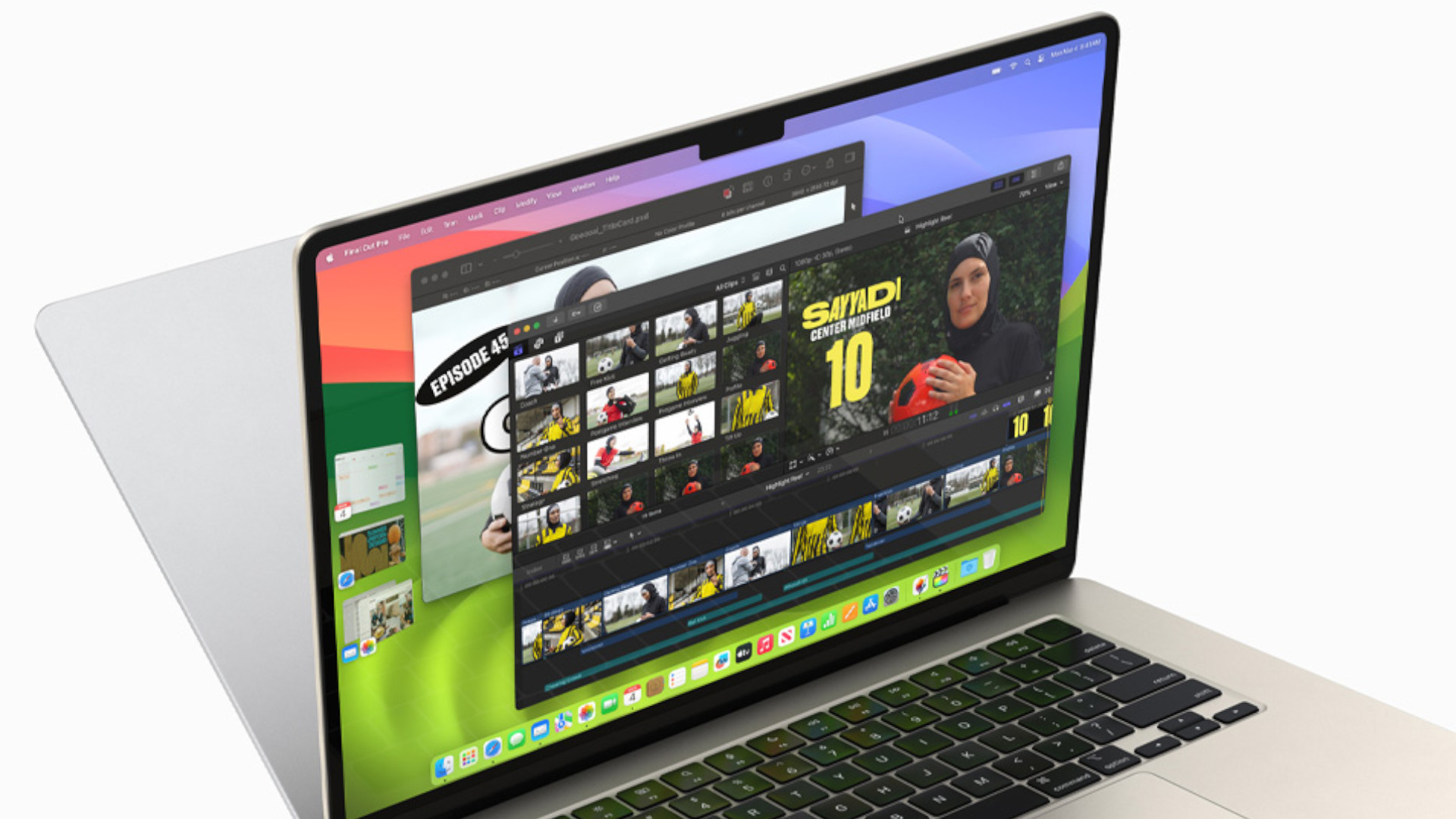Apple earnings report reveals M3 Macs are a hit: Here's what it means for laptop users
The M3 Macbooks are an early hit — here's what it means

Sign up to receive The Snapshot, a free special dispatch from Laptop Mag, in your inbox.
You are now subscribed
Your newsletter sign-up was successful
There were plenty of interesting takeaways from Apple's Q2 2024 earnings report released this week, from AI to a mysterious upcoming product announcement.
However, one data point that stands out is an increase in Mac sales year-over-year. While nearly every other product category at Apple seems to be struggling, Macs are really connecting with consumers.
This increase in Mac revenue hints at a larger trend in the Mac line-up, particularly regarding the latest M3 Macs. What does it mean for Apple silicon, and how will it shape the direction of the M4 series?
Apple earnings report shows sales increase for Macs

One of the most fascinating highlights from this week's Apple earnings report is a notable increase in Mac sales. In Q2 2024, Apple reported $7.4 billion in revenue from its Mac lineup. That's a $300 million increase from Q2 2023. Apple Senior VP and CFO Luca Maestri commented in an investor call on Thursday that the increase was "driven by the strength of [Apple's] new Macbook Air, powered by the M3 chip."
The 13-inch and 15-inch M3 Macbook Air models were released on March 4, 2024, a little over halfway through this fiscal quarter. So, the bump in Mac sales year-over-year is a promising indicator for the new Macbook Air lineup. Apple had only a few weeks of sales in the Q2 earnings report, so we will have to wait until the Q3 earnings report to get a clearer picture of how M3 Macbook sales held up after those first few weeks.
However, there are still a few important takeaways from this data. Growth in Mac sales this quarter may not indicate a new Mac renaissance by itself, but it could point to an interesting trend developing in the Mac lineup and what the future may hold for the M4 Macs.
What's driving a boost in Mac sales?

Aside from "Services," Macs were the only category with revenue growth this quarter at Apple. Why are Mac sales holding up when the iPhone, iPad, and wearables (including the new Vision Pro) appear struggling? It could have something to do with the progression of Apple silicon.
Sign up to receive The Snapshot, a free special dispatch from Laptop Mag, in your inbox.
In the past few years, we have seen incredible performance gains in the Mac lineup since Apple launched its M1 chip. When they launched in 2020, Apple shipped over 6.89 million M1 Macs, a 31.3 percent increase from 2019. The M1 Macbook Air was an instant hit thanks to its huge performance leap over the older Intel-based Macbooks. Vertical integration also allowed Apple to improve the performance of its laptops and desktop computers while keeping prices reasonably stable.
So, the Macbook was already trending upward over the past few years—for the most part. The M2 Macs did not sell as well as their M1 predecessors, but things appear to have returned with the M3 series.
While the M2 Macs built on what made the M1 series great, the M3 Macs introduced improved performance in new areas, especially graphics. Macbooks have a reputation for poor gaming performance, but the M3 chips support raytracing, bringing Mac gaming into the modern era.

Strong graphics performance isn't just good for gaming, either. It's also vital for providing the processing power for AI tools and apps. Luca Maestri even noted in the May 2 investor call that "Customers are loving the incredible AI performance of the latest Macbook Air and Macbook Pro models."
It's tough to say whether the timing of the M3 chips' major graphics improvement was carefully planned or a lucky coincidence. Either way, the fact that it lined up with a boom in AI could be a big contributor to the increase in Mac sales this quarter. It represents a unique value only the M3 Macs can provide, encouraging people with older Macs, even an M1 or M2, to make the switch.
The M3 Macs are also drawing in new users, potentially for similar reasons. Tim Cook mentioned in Thursday's investor call that half of new Macbook buyers in Q2 were new to Mac, meaning they switched from a Windows or Linux device. While the earnings report doesn't show which specific Macbook models these customers purchased, it's possible they were also captivated by the M3 Macs' AI and graphics processing capabilities.
Advancements like that could be part of the reason Mac sales increased this quarter while nearly every other category saw a decrease in sales, especially the iPhone. While it certainly doesn't apply to every customer, many iPhone users may be waiting to upgrade or skip the iPhone because recent iPhones have been consistently excellent and pricey without significant performance differences from one generation to the next.
In contrast, Apple revolutionized their in-house silicon with the M3 chips. The question now is, can they do it again with the M4 series?
What the M4 Macbook can learn from the M3 Macs

News of the increase in Mac sales comes amid months of rumors surrounding the M4 Macs. Considering the early success of the M3 line-up, expectations are high. There are a few ways Apple could build on what the M3 got right to avoid another slump in sales as it experienced with the M2 Macs. A few things we know so far hint at what Apple might have in store.
Reports from Apple analyst Mark Gurman indicate that Apple is planning to unveil the M4 Macs in late 2024. That makes sense, considering they announced the M3 line-up in October 2023. An end-of-year release would also allow the M4 Macs to capitalize on holiday shopping and sales, potentially boosting it early.
In terms of performance, the M4 Macs will likely feature even more processing power for AI specifically. Apple has been open about its plans to make AI a top priority in the near future.
Tim Cook discussed AI at length in the investor call on Thursday, as well, noting, "We believe in the transformative power and promise of AI, and we believe we have advantages that will differentiate us in this new era, including AppleApple'sue combination of seamless hardware, software, and services integration, groundbreaking Apple silicon with our industry-leading neural engines, and our unwavering focus on privacy."
Co"sidering Cook specifically mentions Apple silicon, it's it'sfe bet that the M4 Macs will include even more AI capabilities than their predecessors. Early performance estimates project the M4 chips to have Geekbench scores in the 15,000 range, well above other AI-capable chips out now or on the horizon. Judging by the popularity of the M3 series, this could be a winning strategy for Apple.
However, the success of the M4 Macs will hinge on whether or not Apple can differentiate them from the M3 series enough to encourage people to upgrade. The significant graphics improvements did that for the M3 Macs. Apple will need to find a similarly compelling value proposition for the M4 Macs.
We'll be watching closely over the next few months for more rumors and details on the next generation of Apple silicon. It's possible we'll more hinIthinIt'st 202we202we'llJunere Apple is expected to announce its first wave of AI features in iOS 18 and iPadOS 18. We'll wait and see if these features come to macOS 15, as well.

Stevie Bonifield is a freelance tech journalist who has written for PC Gamer, Tom's Guide, and Laptop Mag on everything from gaming to smartwatches. Outside of writing, Stevie loves indie games, TTRPGs, and building way too many custom keyboards.
